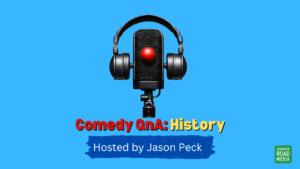David Brooks, 1990 World Champion of Public Speaking, has written an article that appears on the World Champion’s Edge membership site. Here’s the third rule to give a little taster:
3. Write in a style that reflects your manner of speech.
This is not an authorization for you to write using careless speech patterns, slang, or a substandard conversational style. These are barely tolerable in speech and almost always unacceptable in writing. But writing in your natural speaking style-the style you use in a business conversation-will help you eliminate stuffy, stilted words and phrases that make you sound pretentious.
Consider the word per, for example. You have seen it; perhaps you have used it: “Per your request, enclosed is form XY312.” It looks fine on paper because you have seen it so often. But, realistically, would you ever say a stuffy phrase like this: “Per your request, Bob, let’s have lunch”?If that’s how you normally talk, then write that way.
Otherwise, apply this rule: If you wouldn’t say it, don’t write it. Read your writing aloud. If what you hear does not reflect your natural manner, tone, or personality, rewrite it.This is something that I’ve been experimenting with myself for a while now.
I began by writing my speeches, learning them and then through practice you naturally forgt bits, or re-phrase bits of your speech. You then make the necessary amendments to your script. When you finally get up to do your speech, you’ll find that you will make changes again, mentally skip around and re-phrase your speech again.
The thing to do is to get hold of a recording device and record your speech so that you’ll have a record of it. Then sit down with your script and make the necessary alterations when you play back your recording.
Then I moved on to just plotting out the speeches and the points and getting really familiar with the direction and content. I’d make sure that I knew the topic well enough, including having any quotes or other bits of research available and then rehearse out loud over and over again. By using mind maps as discussed in a previous post, you can easily remember the journey and direction of your speech.
Again, once you’ve rehearsed your speech and you deliver it, you’re going to need to make a recording and use that to transcribe the speech so that you have a hard copy record. That way you can edit and refine any jokes that you are using which may have too many words in them. As Shakespeare said:
“Brevity is the soul of wit.”
So the less words there are in your set-up lines, the quicker you can get to your punchlines.
If you have the opportunity to deliver the speech again, then you can also use the transcribed speech to refine some specific phrases. You might need a specific business phrase, or set or words for a particular industry or even a nice turn of phrase to use at a wedding. That’s when having a written copy of your speech will come in handy.
The best thing to do is once your speech is typed out (much easier than writing long hand each time you refine your speech), is to double space the lines so that you can easily read them. You have two choices about what to do with the font; I tend to keep everything in sentence size, but I know Toastmasters recommends capitalizing all of your text. Seeing as it’s just for you, then that your decision.
Capitalizing the whole speech might be better if you’re reading it out, whereas if you’re just using it to capture your speech in order to edit and refine it, then keeping it in regular sentence case (just how this blog is written) might be the way forward for you.
If you’re interested in reading more of David Brooks suggestions (without my comments) then you should think about joining the World Champion’s Edge. There is a wealth of information in there and I can thoroughly recommend it.



